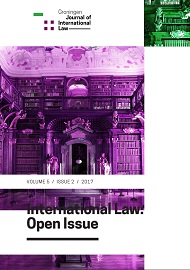Blurring the Beginning of Non-International Armed Conflict: The Frustration of Legal Paradigms in Response to Terrorism
DOI:
https://doi.org/10.21827/5a6afa1c15c57Keywords:
INTERNATIONAL HUMANITARIAN LAW, NON-INTERNATIONAL ARMED CONFLICT, LAW ENFORCEMENT, TERRORISM, COUNTER-TERRORISM, APPLICABILITY OF IHLAbstract
The past decades have seen an increasing amount of intra-State wars unfold. The term ‘terrorism’ has increasingly become a license for States to unilaterally conduct their action. Because of that, determining the applicable legal norms that delimit the State’s military power and regulate the warring parties’ conducts is of ultimate importance. Although the legal test for the applicability of international humanitarian law in noninternational armed conflict has been largely settled – first found in the second Protocol additional to the Geneva Convention and second supplemented by international tribunals as declaratory of customary IHL – terrorism has caused much frustration in the course of such legal determination, not helped by the obscure facts on the ground. This article will argue that by subjectively classifying a situation as ‘terrorism’ the State has not displaced the applicability question. In fact, the impact that terrorism has on the legal assessment is minimal, if any.
Published
Issue
Section
Open Access Creative Commons


